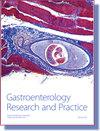姜黄素调节的肠上皮自噬对小鼠炎症性肠病的保护作用
IF 2
4区 医学
Q3 GASTROENTEROLOGY & HEPATOLOGY
引用次数: 2
摘要
目的探讨姜黄素(Cur)对3%葡聚糖硫酸钠(DSS)诱导的炎性肠病(IBD)小鼠的改善作用,探讨姜黄素(Cur)通过调节肠道上皮细胞自噬的作用。方法将45只BALB/c小鼠随机分为对照组、DSS组、Cur组,每组15只。除对照组外,小鼠自由灌饮3% DSS诱导急性IBD 7 d, Cur组给予Cur灌胃治疗。采用苏木精-伊红(HE)染色观察小鼠结肠组织的病理变化。透射电镜观察了肠上皮细胞自噬体的形成。Western blot检测LC3-II/LC3-I、p62、Beclin1蛋白的表达。结果与对照组比较,DSS组小鼠体重明显减轻,粪便未形成或呈稀便,粪便中有隐血或血,毛发颜色失去光泽,疾病活动指数(DAI)评分明显升高,结肠黏膜上皮细胞出现结肠炎;LC3-II/LC3-I和Beclin1表达显著降低(P < 0.05), p62表达显著升高,自噬不明显。此外,与DSS组相比,Cur组小鼠的饮食得到改善,体重下降速度减缓,毛发光泽恢复,粪便中血逐渐减少或隐匿,DAI评分降低,结肠组织明显改善,LC3-II/LC3-I和Beclin1表达显著升高(P < 0.05), p62显著降低。结论Cur对IBD小鼠的作用可能与调节肠上皮细胞中自噬通路蛋白LC3-II/LC3-I、Beclin1和p62的表达有关。本文章由计算机程序翻译,如有差异,请以英文原文为准。
Protective Effects of Curcumin-Regulated Intestinal Epithelial Autophagy on Inflammatory Bowel Disease in Mice
Objective This study was aimed at exploring the ameliorating effect of curcumin (Cur) on inflammatory bowel disease (IBD) in mice induced by 3% dextran sodium sulfate (DSS) by regulating intestinal epithelial cell autophagy. Methods 45 BALB/c mice were randomly divided into three groups: control group, DSS group, and Cur group, with 15 mice in each group. Expect for the control group, 3% DSS was freely drunk by the mice for 7 days to induce acute IBD, and the Cur group was given Cur gavage treatment. Hematoxylin-Eosin (HE) staining was performed to observe the pathological changes of mice colon tissue. The formation of autophagosomes in intestinal epithelial cells was detected by transmission electron microscopy (TEM). The protein expressions of LC3-II/LC3-I, p62, and Beclin1 were detected by Western blot. Results Compared with that of the control group, body weight of mice in DSS group was significantly reduced, stool was not formed or presented with loose stools, there was occult blood or blood in the stool, hair color lost luster, disease activity index (DAI) score was significantly increased, and colonic mucosal epithelial cells showed colitis; LC3-II/LC3-I and Beclin1 expression were significantly decreased (P < 0.05), p62 was significantly increased, and autophagy was not obvious. In addition, compared with that of the DSS group, the diet of mice in the Cur group was improved, the decline of body weight was slowed down, the hair glossiness was restored, the blood in the stool gradually decreased or occulted, the DAI score was decreased, the colon tissue was significantly improved, the expressions of LC3-II/LC3-I and Beclin1 were significantly increased (P < 0.05), and the p62 was significantly decreased. Conclusions The effect of Cur on IBD mice was related to the regulation of the expression of autophagy pathway proteins LC3-II/LC3-I, Beclin1, and p62 in intestinal epithelial cells.
求助全文
通过发布文献求助,成功后即可免费获取论文全文。
去求助
来源期刊

Gastroenterology Research and Practice
GASTROENTEROLOGY & HEPATOLOGY-
CiteScore
4.40
自引率
0.00%
发文量
91
审稿时长
1 months
期刊介绍:
Gastroenterology Research and Practice is a peer-reviewed, Open Access journal which publishes original research articles, review articles and clinical studies based on all areas of gastroenterology, hepatology, pancreas and biliary, and related cancers. The journal welcomes submissions on the physiology, pathophysiology, etiology, diagnosis and therapy of gastrointestinal diseases. The aim of the journal is to provide cutting edge research related to the field of gastroenterology, as well as digestive diseases and disorders.
Topics of interest include:
Management of pancreatic diseases
Third space endoscopy
Endoscopic resection
Therapeutic endoscopy
Therapeutic endosonography.
 求助内容:
求助内容: 应助结果提醒方式:
应助结果提醒方式:


